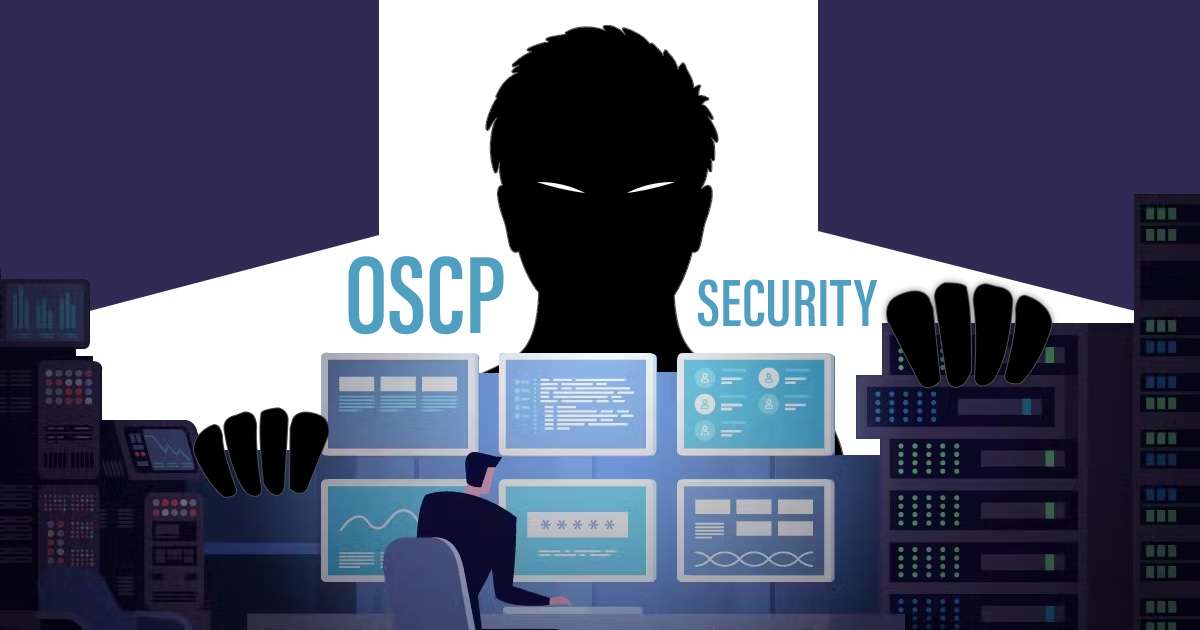What is an OSCP? The Path to Ethical Hacking Mastery

In cybersecurity, the need for experts who can find and fix security weaknesses is growing rapidly. The Offensive Security Certified Professional (OSCP) is a highly renowned and sought-after credential in this industry. But what exactly is an OSCP, and why is it so popular among those pursuing careers in ethical hacking and penetration testing?
What is an OSCP?
The Offensive Security Certified Professional (OSCP) is a highly regarded cybersecurity credential. The OSCP is a worldwide recognized certification that verifies an individual’s ability to detect and exploit system vulnerabilities, demonstrating a high level of proficiency in penetration testing and ethical hacking. This certification is precious for those looking to advance their careers in cybersecurity, as it proves hands-on skills and practical knowledge.
OSCP in cybersecurity stands out for its rigorous and practical approach. It is not just about theoretical knowledge; the OSCP emphasizes real-world applications. Candidates are required to conduct a full penetration test on a network of virtual machines, identifying and exploiting security flaws. This practical knowledge is crucial for equipping professionals to face real-world security concerns.
What is the value of OSCP in cybersecurity?
The OSCP certification is highly valued in the cybersecurity industry since it enables individuals to handle a wide range of responsibilities and obstacles. Here are some key areas where OSCP-certified professionals excel:
- Penetration Testing: OSCP-certified professionals are skilled in ethical hacking. They can perform thorough security assessments, find vulnerabilities in networks, systems, and applications, and offer solutions to fix these issues.
- Incident Response and Forensics: OSCP-certified professionals are crucial during a security breach or cyberattack. They can identify and analyze malicious activities, understand attack methods, and help reduce the impact of security incidents while preventing future ones.
- Cybersecurity Consulting: OSCP-certified professionals are valuable in cybersecurity consulting. With their deep knowledge of offensive security practices, they provide insights and advice to organizations looking to improve their security and protect against advanced threats.
- Research and Development: The OSCP certification gives individuals a strong understanding of security vulnerabilities, exploit development, and advanced hacking techniques. This expertise is vital for creating new security solutions and advancing cybersecurity practices.
What are the benefits of obtaining an OSCP?
Earning an OSCP certification offers numerous benefits, including:
- Career advancement: Employers highly respect the OSCP, and it can lead to advanced cybersecurity positions.
- Skill Validation: It validates your ability to perform real-world penetration tests and ethical hacking.
- Professional Recognition: Being OSCP-certified distinguishes you from your peers and indicates your commitment to professional development.
- Networking Opportunities: Joining the OSCP community connects you with other professionals and experts in your sector.
What is the cost of OSCP certification?
When pursuing OSCP certification, one of the most important considerations is cost. The total cost may vary depending on the training and supplementary resources you select. Here’s a simple breakdown of the typical costs:
- Training Course (Optional): Many candidates prepare for the OSCP exam by enrolling in the Offensive Security’s Penetration Testing with Kali Linux (PWK) course, which costs about $1649.
- OSCP Exam Fee: The exam fee is also around $1,649. This includes the cost of the exam, access to the virtual lab environment, and a 90-day lab period.
- Additional Resources (Optional): Some candidates invest in extra study materials, practice labs, or mentorship programs to boost their preparation. The cost of these additional resources may vary.
The OSCP certification is a significant investment, both in terms of time and money. However, many in the cybersecurity field find it worthwhile. The skills and knowledge gained through the certification can open up well-paying career opportunities and increase earning potential over time.
What are the requirements for OSCP?
To pursue the OSCP (Offensive Security Certified Professional) certification, there are several key requirements and recommendations that candidates should consider:
1. Basic Knowledge:
- Networking: Understanding of IP addressing, subnets, and common network protocols.
- Linux: Familiarity with Linux commands and basic shell scripting.
- Programming/Scripting: Basic understanding of programming or scripting languages like Python, Bash, and Perl.
2. Recommended Experience:
- Penetration Testing: Prior experience with penetration testing and ethical hacking concepts is highly beneficial.
- Offensive Security Training: While not required, Offensive Security’s Penetration Testing with Kali Linux (PWK) course is highly recommended. This course covers the fundamental knowledge and abilities needed for the OSCP exam.
3. Technical Skills:
- System Administration: Basic skills in system administration, including managing and configuring Windows and Linux systems.
- Security Tools: Familiarity with common penetration testing tools and techniques, such as Nmap, Metasploit, and Burp Suite.
4. Practical Mindset:
- Problem-Solving: Strong problem-solving abilities, as well as the capacity to think creatively and critically.
- Persistence: The OSCP exam is known for its difficulty and requires perseverance and determination to succeed.
5. Exam Readiness:
- Lab Practice: Extensive practice in a lab environment is necessary to develop hands-on skills. Offensive Security provides access to a virtual lab environment as part of the PWK course.
- Documentation: Ability to document findings and create detailed reports, as the exam includes a reporting component.
While there are no formal prerequisites for the OSCP certification, having a solid foundation in the areas mentioned above will greatly enhance your chances of success. Proper preparation through study, practice, and training is crucial to mastering the skills needed to achieve the OSCP certification.
What are the prerequisites for OSCP?
Though there are no mandatory prerequisites for enrolling in the OSCP certification, it is beneficial to have some foundational knowledge and experience. Here are the key OSCP prerequisites:
- Basic Networking Knowledge: Understanding of IP addressing, subnets, and common network protocols.
- Linux Skills: Familiarity with Linux commands and shell scripting.
- Programming/Scripting: Basic understanding of programming languages such as Python, Bash, and Perl.
- Penetration Testing Experience: Prior exposure to penetration testing concepts and tools is highly advantageous.
What is the structure of the OSCP exam?
The OSCP exam is a 24-hour practical test that requires students to detect and exploit vulnerabilities on numerous machines in a controlled setting. The exam is intended to imitate real-world scenarios and test the candidate’s skills and knowledge. To pass, candidates must score at least 70 out of 100 points by compromising a set number of machines and submitting a thorough report detailing their findings and methodologies.
OSCP vs. Other Certifications
When considering cybersecurity certifications, it’s helpful to compare the OSCP with other options:
- CEH (Certified Ethical Hacker): The CEH focuses more on theoretical knowledge, while the OSCP emphasizes hands-on skills.
- CISSP (Certified Information Systems Security Professional): CISSP covers a broader range of security topics, whereas the OSCP is highly specialized in penetration testing.
- GPEN (GIAC Penetration Tester): GPEN is another respected certification in penetration testing. However, it does not have the same hands-on exam format as the OSCP.
Prepare & Successfully Achieve Your OSCP Certification
The OSCP certification is a powerful credential for anyone serious about a career in cybersecurity. By providing rigorous training and a challenging exam, it ensures that certified professionals are well-prepared to tackle real-world security issues. Understanding what an OSCP is, along with the OSCP certification cost, OSCP requirements, and OSCP prerequisites, is essential for anyone considering this certification. With dedication, proper preparation, and practical experience, achieving the OSCP can significantly enhance your career prospects and professional credibility in the cybersecurity industry.

